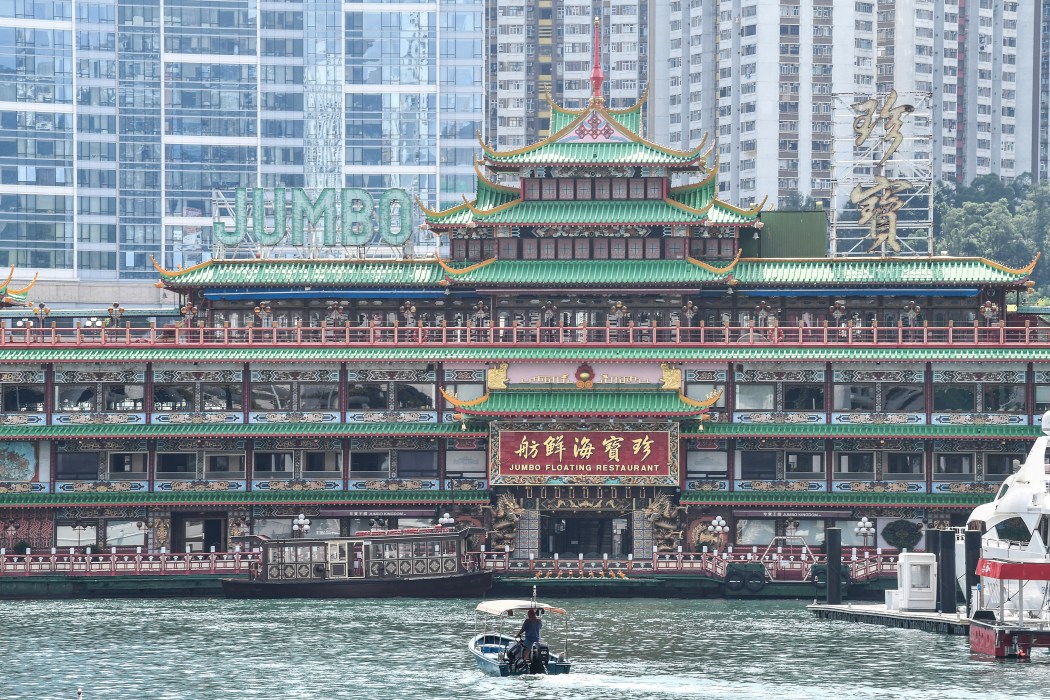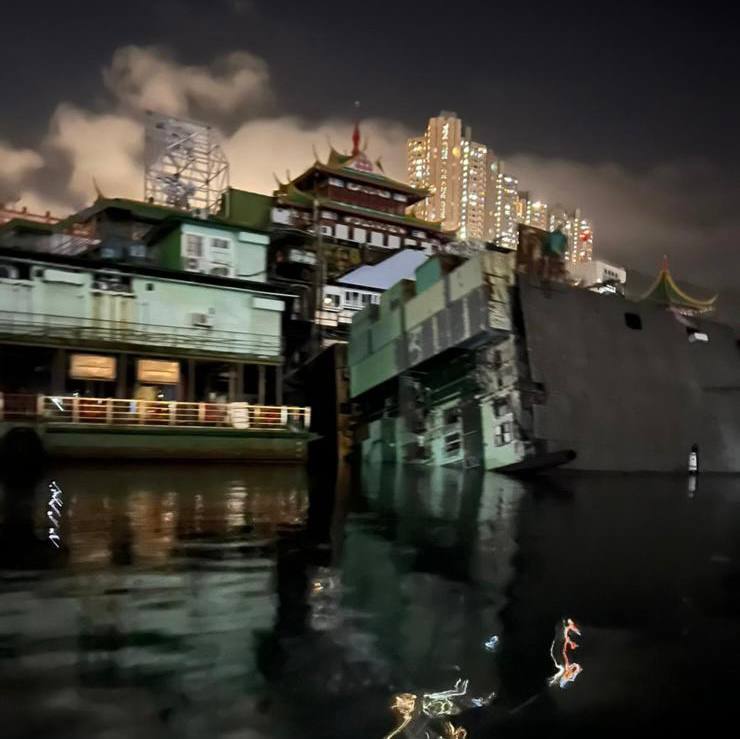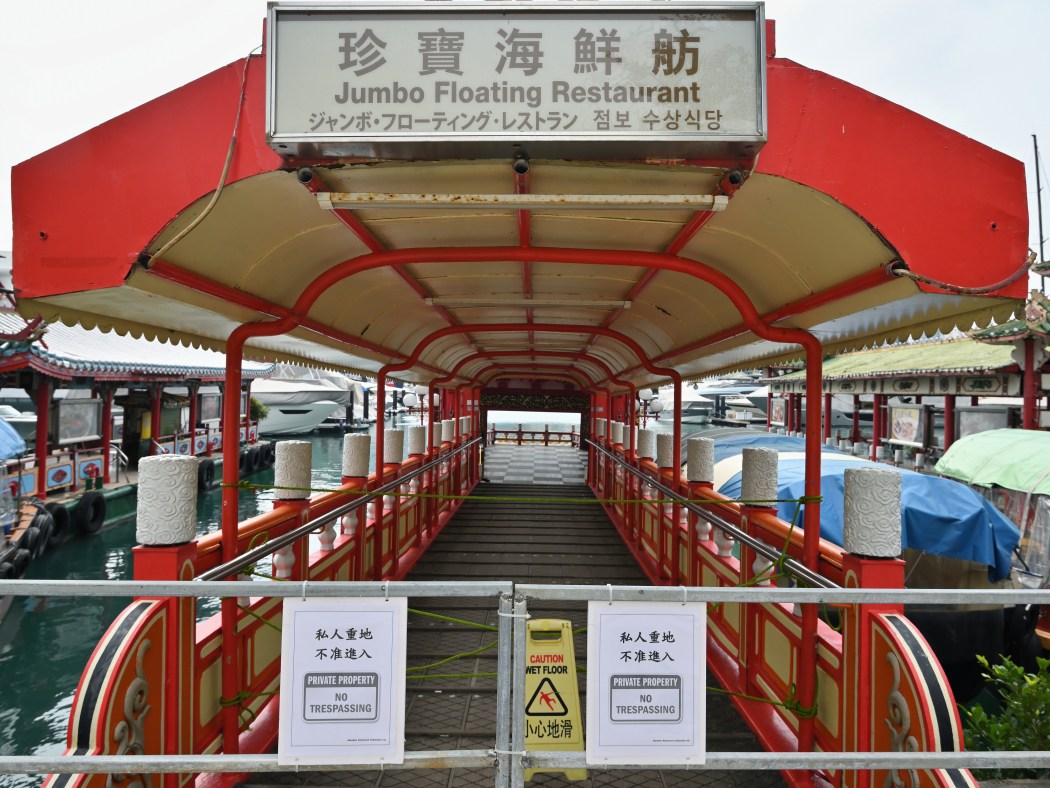The iconic Jumbo Floating Restaurant was promised a new lease of life as a “distinctive cultural heritage and tourist attraction” when Chief Executive Carrie Lam painted a rosy picture of the future of Aberdeen Harbour in her policy address in November 2020. She called the plan: Invigorating Island South.

For more than 40 years, the Jumbo Floating Restaurant and its smaller sibling, Tai Pak Restaurant, were destinations for families and tourists – and often a backdrop in local and Hollywood films. The two formed the Jumbo Kingdom, undoubtedly one of Hong Kong’s best known icons.
Unfortunately, it way also one of the many casualties of the Covid-19 pandemic. After Jumbo Floating Restaurant closed in March 2020, the owner agreed to donate it to Ocean Park at no cost.
Great fanfare followed Lam’s announcement about the revitalisation of the city’s Southern District. Immediately after the address, dozens of real estate commercials and pro-growth opinion leaders called on Jumbo’s revitalisation to rationalise sky-high property prices in the neighbourhood.
In 2021, Ocean Park secured financial assistance worth HK$1.12 billion to be doled out in yearly payments of HK$280 million over four years from the public coffers in the name of “conservation and education”. A year prior, the government approved a HK$5.4 billion bailout for the park.

The general public only woke up to the fact that the Ocean Park had quietly dropped the plan to assume ownership of Jumbo Floating Restaurant when Jumbo’s owner announced late last month it was unable to find an operator and was thus left with only one option – sending the vessel overseas.
In a couple weeks, Jumbo Floating Restaurant will leave Aberdeen Harbour. Many have mourned the imminent disappearance of a cultural icon. There is little doubt Tai Pak will share the same fate if no white knight appears. Aberdeen Harbour will never be the same.

Jumbo Kingdom embodies the grandeur of the traditional “go tong boats,” or “dance hall boats,” that once dotted the coast of Guangzhou. Dance hall boats offered dancing and banquet services. Those in Aberdeen, however, focused on serving banquets for the fishing communities, relying on local fishers for their supply of seafood.
As time went by, dance hall boats became floating restaurants that served both the fishing communities and outside guests. Competition intensified in the 1970s, when Sea Palace and Tai Pak dominated the market. Later on, Jumbo entered the scene and subsequently acquired both Sea Palace and Tai Pak. Jumbo Kingdom sourced its supplies from across Southeast Asia.

But now, Jumbo Floating Restaurant will leave Hong Kong, destiny and destination unknown. A pledge made in the policy address not honoured.
Invigorating Island South, however, will keep going. The government will continue to expedite the redevelopment and conversion of old industrial buildings in Wong Chuk Hang, while exploring the redevelopment of “Government, Institution or Community” sites. A large tranche of Ocean Park will be turned into a retail, dining and entertainment zone.
By abandoning a cultural icon in the name of adding no financial burden to Ocean Park, the government lays bares that Invigorating Island South is a government-led gentrification scheme with no regards to history, culture or communities.
It is a shame that the history of dance hall boats in Hong Kong will end because officials prefer to inject billions of dollars of public money to bail out Ocean Park than intervene to save a cultural icon. As a result of their decisions, the city will lose its grandest floating restaurant.
Support HKFP | Policies & Ethics | Error/typo? | Contact Us | Newsletter | Transparency & Annual Report | Apps
| HKFP is an impartial platform & does not necessarily share the views of opinion writers or advertisers. HKFP presents a diversity of views & regularly invites figures across the political spectrum to write for us. Press freedom is guaranteed under the Basic Law, security law, Bill of Rights and Chinese constitution. Opinion pieces aim to point out errors or defects in the government, law or policies, or aim to suggest ideas or alterations via legal means without an intention of hatred, discontent or hostility against the authorities or other communities. |
Help safeguard press freedom & keep HKFP free for all readers by supporting our team

More HKFP OPINION:
HKFP has an impartial stance, transparent funding, and balanced coverage guided by an Ethics Code and Corrections Policy.
Support press freedom & help us surpass 1,000 monthly Patrons: 100% independent, governed by an ethics code & not-for-profit.










